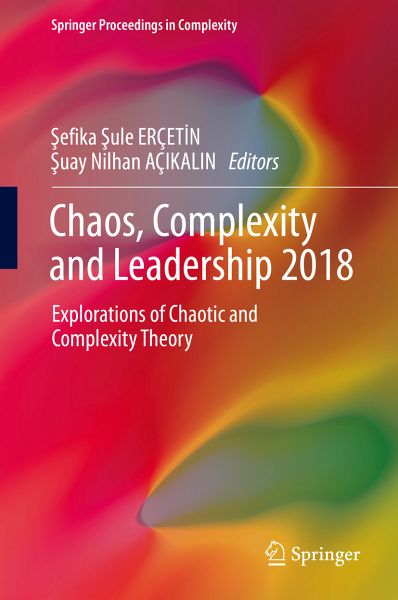
Chaos, Complexity and Leadership 2018 (eBook, PDF)
Explorations of Chaotic and Complexity Theory
Redaktion: Erçetin, Sefika Sule; Açikalin, Suay Nilhan
Versandkostenfrei!
Sofort per Download lieferbar
160,95 €
inkl. MwSt.
Weitere Ausgaben:

PAYBACK Punkte
80 °P sammeln!
This book constitutes the proceedings of the 6th International Symposium on Chaos, Complexity and Leadership (ICCLS). Written by interdisciplinary researchers and students from the fields of mathematics, physics, education, economics, political science, statistics, the management sciences and social sciences, the peer-reviewed contributions explore chaotic and complex systems, as well as chaos and complexity theory in the context of their applicability to management and leadership. The book discusses current topics, such as complexity leadership in the healthcare fields and tourism industry, c...
This book constitutes the proceedings of the 6th International Symposium on Chaos, Complexity and Leadership (ICCLS). Written by interdisciplinary researchers and students from the fields of mathematics, physics, education, economics, political science, statistics, the management sciences and social sciences, the peer-reviewed contributions explore chaotic and complex systems, as well as chaos and complexity theory in the context of their applicability to management and leadership. The book discusses current topics, such as complexity leadership in the healthcare fields and tourism industry, conflict management and organization intelligence, and presents practical applications of theoretical concepts, making it a valuable resource for managers and leaders.
Dieser Download kann aus rechtlichen Gründen nur mit Rechnungsadresse in A, B, BG, CY, CZ, D, DK, EW, E, FIN, F, GR, HR, H, IRL, I, LT, L, LR, M, NL, PL, P, R, S, SLO, SK ausgeliefert werden.












